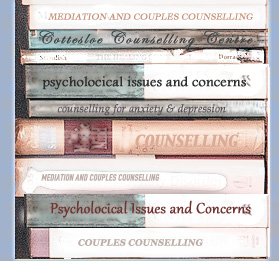The trust we so keenly desire in our relationships is one of the oldest states or capacities we humans know of. It is the ‘glue’ that enables two people to come together in a sharing partnership that is enduring. It has its origins in our very early experiences of life.
Why is trust so easy to lose and so hard to regain?
In order to better understand this, we need to look more closely at where it all begins.
Two key steps in early psychological development are being ‘mirrored’ by others and ‘idealising’ others.
Mirroring means the primary caregiver or mother completely accepts, understands and empathises with the baby’s emotions or feelings. She reflects these back to the baby, as in “You are hungry and upset, it’s OK to be upset”. She attunes her feelings to those of the baby. The baby is comforted and fed. Basic trust is developed through a series of reliable fulfilments of our needs by our parents.
Idealizing in the growing child means the child looks up to and admires someone, usually mother or father and imitates them. Their caretaking competencies of soothing, nurturing and confidence-producing qualities, both emotional & physical are internalised by the child. They model the skills and the child incorporates them. This results in our being able to nurture ourselves as our parents nurtured us and then to be able to nurture others later in life.
There is a shift in reliance on external sources of need fulfilment to a reliance on what we have internalised. Our security is now based on an inner experience. We begin to depend on ourselves, to trust ourselves. We continue to learn to fulfil our own needs when our parents fail to do so for us. We thereby learn to value & trust ourselves.
As we continue to grow, the extension of the Idealizing process leads us to perceive the idealised parent/other as an equal – we respect them as co-adults.
What does it mean to trust someone?
In a practical sense you place confidence in someone to be honest with you, faithful to you, be reliable, to keep promises & confidences and to not abandon you.
In personal relationships we usually confuse trust with an unthinking, taken-for-granted attitude of unquestioning acceptance or what Robert Soloman calls ‘simple trust’, like the trust of a child for its parents.
Trusting another person requires a realistic perspective about people and an expectation of failure.
Is there unconditional trust? No-one can be always trustworthy and reliable. The “All the time” expression no longer fits adult relationships. Because of our inner sense of security, we can experience occasional personal betrayal or deceit. We become able to hold others with a relaxed grasp rather than compulsively or as if for dear life. Without strong reserves of ongoing trust in ourselves as worthy of trust, we may believe that someone is abandoning us when in fact they may just be temporarily unavailable to us. Disapproval could also be interpreted as a form of abandonment. Without basic trust in ourselves, we might believe we will fall apart when the person we need so much disappears.
Barriers To Building Trust
- The desire to control the relationship. This creates unequal ground resulting in your partner withdrawing or alienating himself.
- Dishonesty, the lack of openness and honesty. Lying by omission or only telling him what you think he needs to hear. Don’t hide the facts – the truth doesn’t destroy.
- Self-centeredness, only focussing on yourself & your needs.
- Jumping to conclusions and often the wrong ones. Treat him the way you would like to be treated – with love and respect.
- Fear is the basis of mistrust. Conditional love and fear of being hurt lead to distrust, dishonesty and instability
Steps To Increase Trust
- Increase your understanding of his feelings. Empathise as well as acknowledge his feelings are real even if you don’t agree with his actions. If he feels understood he is more likely to calm down & listen to your side of the story.
- Make your words match your deeds, in other words make your body language match your words.
- Let your needs be known in a calm and controlled manner. When you know what someone wants or needs, you know where he stands and therefore where you stand. This builds respect and greater intimacy.
- Be predictable or consistent in your behaviour but remain spontaneous. If you are feeling unsettled or unpredictable, inform your partner.
- Apologise when you make a mistake. Take responsibility for making a bad choice that hurt the other. Be willing to say “I’m sorry”.
- Don’t keep secrets. It takes a lot of energy avoiding the subject & concealing the evidence or facts.
- Set boundaries – learn to say “No”. Protective saying No is respected
- Spend quality time together, face-to-face, not texting or emailing.
- Share personal information about yourself – your interests, ideas, beliefs, values & preferences. Let people know these and they will see you as a person of interest and character. They will know what makes you ‘tick’ and respect that.
- Do things that are in their interests – balance your needs and theirs.
- Forgiveness – being able to forgive your partner for previous hurt. If you cling onto petty hurts, the relationship will die. Being able to forgive stems from being forgiven oneself.
Trust is like a plant, it needs constant nurturing, watering, feeding and tending. Trust grows gradually, it is not an “all or nothing” capacity and grows best in an environment of acceptance and love.
If you would like further information about difficulties with Trust in Relationships, please don’t hesitate to contact Philippa at Cottesloe Counselling Centre.
References Building Trust; Robert C. Slolman & Fernando Flores. Published to Oxford Scholarship Online; Nov 2003; ISBN 13:9780 195 161113 When the Past Is Present; David Richo; Shambhala Publications, 2008
